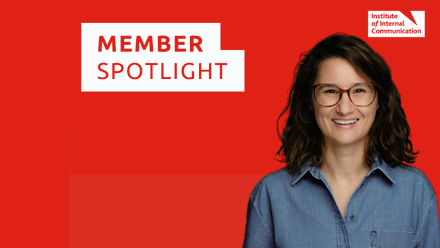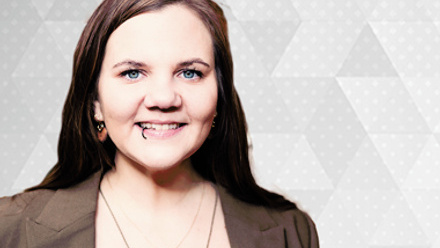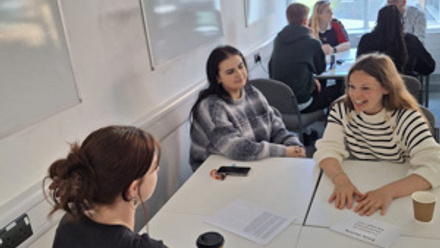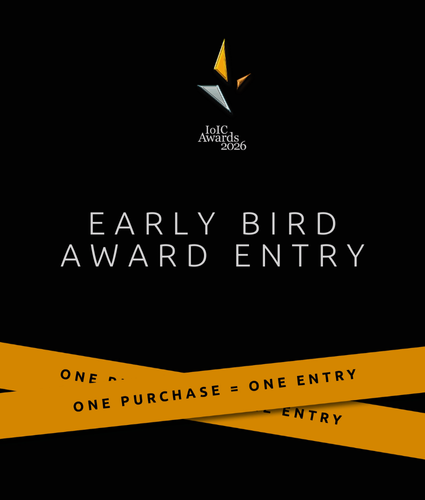How has the role of internal communication evolved since you started your career, and what key trends do you believe will shape its future?
Evolution
My career in comms began in the 80s for an international film distribution company. At this time corporate communications and PR were king, and internal comms was the responsibility of each business functions’ day to day activities. The sales and marketing team had an internal newsletter dedicated to the sales force. Other ‘internal communication’ would be in the form of memos on the company noticeboard, or a team meeting with your manager. Big news, like a take over or a commercial deal, would be shared through [what felt like] an impromptu town hall meeting. I’m sure a significant amount of planning went into these town hall meetings, but there was no obvious internal communication leader.
Leading edge tech at this time was a Vydec word processor, used to manage our external contacts database, which was saved onto huge floppy discs…which were backed up onto more huge floppy discs.
Photocopiers were also revolutionary tools. And let’s not forget the introduction of the facsimile machine (fax), which was transforming the way we worked by enabling us to send pictures electronically and slowly replacing the Telex.
The introduction of Microsoft tools like email in the 90s made it easier to distribute information in a much more efficient way and PowerPoint made presentations more visually pleasing (and less fiddly than 35mm slides or acetates).
Aside from the evolution of different tools we’ve used over the years, the biggest change is how the role of internal comms has evolved to become a distinct professional discipline with recognised academic qualifications and career paths.
I genuinely believe that internal communication professionals have a position of privilege in an organisation. With a clear purpose and strategic intent, we can help businesses to achieve remarkable things.
Trends
The adoption of Artificial Intelligence (AI) as an integral tool for internal communication is the obvious top trend.
It’s critical that we see this as an opportunity rather than a threat and use the power available to us to become more effective, for example to automate routine tasks and help with the interpretation and analysis of data. It’s hugely exciting and impossible to know just how far this will go, but in my view, tools will never replace the skill, empathy, knowledge and lived experience of a human being. (Famous last words?!)
Another trend is the blurring of the line between internal and external comms channels. This could be due to social media channels feeling less curated, more current and authentic. They’re often more engaging and interactive due to bigger creative budgets, and as they’re generally platform / device agnostic, they’re more easily accessible, i.e. to deskless workers. Another plus could be that we have more control over what we subscribe to and when.
I know of companies who report higher engagement rates for their LinkedIn page than their internal news channel and are actively using this to inform and educate colleagues.
This requires increased collaboration between internal and external comms colleagues to work closely together in the creation of their comms plans, which feels like we’re going full circle back to the 80s.
Why did you choose to pursue a Fellowship?
I read somewhere that growth will only happen when things get uncomfortable. The process of applying for Fellowship was a little uncomfortable and I had a couple of real imposter syndrome moments of self-doubt. But I’m at a stage in my career, and life, where I want to give something back and to be recognised for my lifetime contribution to the comms profession. With so much experience, it would be a shame not to pay it forward, perhaps through mentoring or other opportunities.
As a freelancer, I’m conscious that, to offer the best value to my clients, I need to keep learning, not only to stay current but to look forward to what’s next. I’m hoping that being a Fellow will help me in this respect and be a way for me to get more involved with the IoIC and the IC community, particularly in the East Region.
As an advocate for internal communication, what strategies have you found most effective in demonstrating its impact on organisational performance and employee engagement?
I’ve always found that data-driven strategies are the most effective.
Internal communication priorities must align with the company goals and, to demonstrate value, we need to measure and share our impact regularly so leaders can see the true power of internal communication as a critical strategic driver.
What has been the most significant challenge in elevating the importance of internal communication within an organisation, and how did you successfully navigate or overcome that challenge?
The lack of alignment at a senior level about the role of internal communication is generally the most significant challenge.
If the board or senior leaders don’t agree on what their internal communication team are there for, or they’re not aligned with the IC plan, it will be an uphill struggle and often become chaotic.
It takes time to build trust and credibility. I’ve found that by using data driven success stories we can illustrate how internal communication is contributing to measurable goals, such as performance, customer satisfaction, or a reduction in attrition, and reinforce the value of internal communication as a strategic advisory function.
IoIC’s #IChoseIC campaign aims to position internal communication as a career of choice. What advice would you give to someone just entering the profession to help them succeed and grow?
Be proud of your choice. Internal communication is so important, but it’s not easy. In fact, it can often feel like a thankless task, but when you get it right, the impact can be massive and extremely satisfying.
Never stop learning. Take advantage of the free resources to stay tuned to what’s happening in the IC industry. Try to stay abreast of the latest tools and techniques, but focus on developing human skills, like being a good listener, understanding peoples’ differences and learning how best to connect with them.







